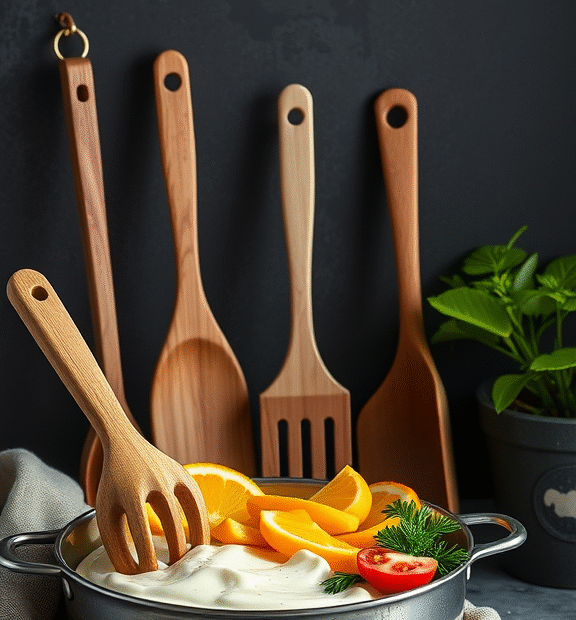Choosing the Ideal Material for Cooking Utensils
Selecting the best material cooking utensils is essential for enhancing both the cooking experience and the longevity of your kitchen tools. Different materials offer unique benefits, impacting heat resistance, durability, and food safety. Understanding which material suits your culinary needs can transform everyday meal preparation.
Common Materials and Their Advantages
Stainless Steel: Renowned for its durability and rust resistance, stainless steel cooking utensils are versatile and dishwasher safe. They do not react with acidic foods, making them a safe choice for various recipes.
Silicone: Silicone utensils are heat-resistant and gentle on non-stick cookware surfaces. They prevent scratching while withstanding temperatures up to 600°F, making them perfect for baking and stirring.
Wood: Wooden utensils provide a natural, eco-friendly option that doesn’t conduct heat, allowing comfortable handling. They are ideal for stirring thick sauces and working with non-stick pans without scratching.
Nylon: Nylon utensils offer affordability and heat resistance but are best used at lower temperatures to avoid melting. They work well with non-stick cookware and are stain resistant.
Factors to Consider When Choosing Utensil Materials
- Heat tolerance to match cooking styles
- Compatibility with non-stick and delicate cookware
- Ease of cleaning and maintenance
- Durability and resistance to wear
Ultimately, the best material cooking utensils depend on your kitchen habits and cookware. Prioritizing utensils with safe, durable materials ensures efficient cooking and protects your investment in cookware over time.
